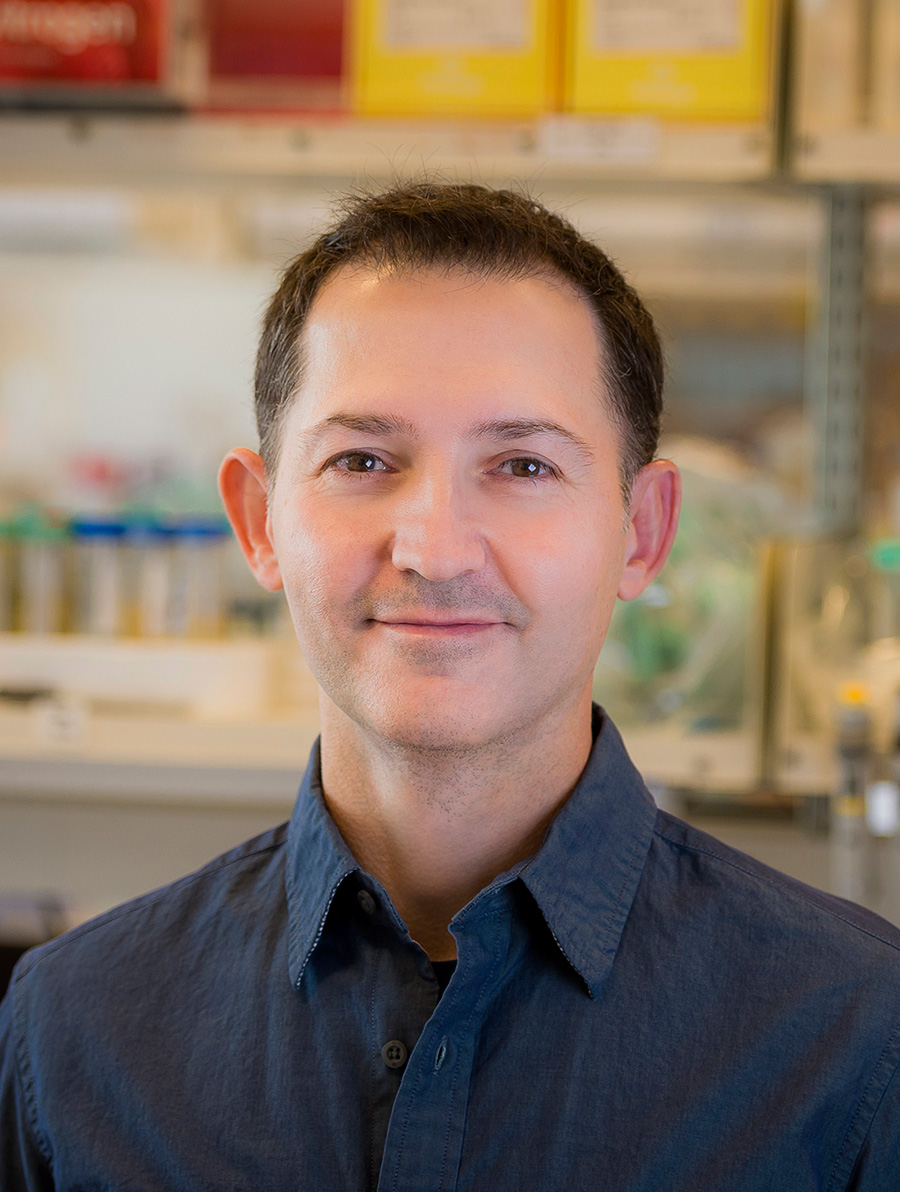
UC San Diego Professor Gürol Süel Receives $1.5 Million Howard Hughes Medical Institute-Simons Grant
Published Date
By:
- Erika Johnson
Share This:
Article Content

Professor Gürol Süel
The Howard Hughes Medical Institute (HHMI), the Simons Foundation, and the Bill & Melinda Gates Foundation today named University of California San Diego Molecular Biology Professor Gürol Süel an HHMI-Simons Faculty Scholar. Süel will receive a total of $1.5 million over five years in support of his studies on how bacterial cells communicate with each other via electrical signals, similar to the way neurons transmit messages in the brain.
Süel was one of 84 scholars across the nation chosen this year by the institute from over 1,400 applicants. The HHMI Faculty Scholars program supports early career researchers who have strong potential to make groundbreaking contributions to fundamental problems in diverse areas of biology. The goal is to provide basic researchers and physician scientists with the time and freedom to pursue difficult, long-range questions in creative, collaborative and interdisciplinary ways.
“This is a notable honor for an extraordinary young professor who has made paradigm-shifting discoveries in the past few years,” said Dean of the Division of Biological Sciences William McGinnis.
Süel studies how bacteria coordinate their behavior to collectively organize into communities called biofilms, which have a higher resilience against antibiotics. His research suggests that, similar to neurons in the brain, bacteria use electrical cell-to-cell signaling mediated by ion channels to coordinate their action. His group recently showed that this coordination increases the resilience of biofilms against antibiotics.
“Much of our understanding of electrical signaling in our brains is based on structural studies of bacterial ion channels” said Süel. But how bacteria use those ion channels remained a mystery until Süel and his colleagues embarked on an effort to examine long-range communication within biofilms—organized communities containing millions of densely packed bacterial cells. These communities of bacteria can form thin structures on surfaces—such as the tartar that develops on teeth—that are highly resistant to chemicals and antibiotics.
Süel’s interest in studying long-range signals grew out of a previous study which found that biofilms are able to resolve social conflicts within their community of bacterial cells, just like human societies. This complex interaction required that bacteria residing in biofilm can communicate over very large distances. His team of postdocs and graduate students then discovered that this long-range communication is based on electrical signaling. “Just like the neurons in our brain, we found that bacteria use ion channels to communicate with each other through electrical signals,” explained Süel. “In this way, the community of bacteria within biofilms appears to function almost like a ‘microbial brain’.”
With this grant, he and his team will be able to uncover the physiological importance of electrical signaling in bacteria and determine its implications. “This funding is critical and absolutely essential to enable us to pursue with great intensity and focus our research goals that emerged from our recent discovery of electrical signaling in bacterial communities,” said Süel.
Süel received his doctorate in Molecular Biophysics from the University of Texas, Southwestern Medical Center in 2003. He began his career at UC San Diego in 2012 as part of the campuswide qBio Initiative. Since then, his laboratory has focused on bacterial biofilm communities. Süel also serves as the Associate Director of the San Diego Center for Systems Biology, which is an NIH Center for Excellence.
Share This:
You May Also Like
Stay in the Know
Keep up with all the latest from UC San Diego. Subscribe to the newsletter today.


